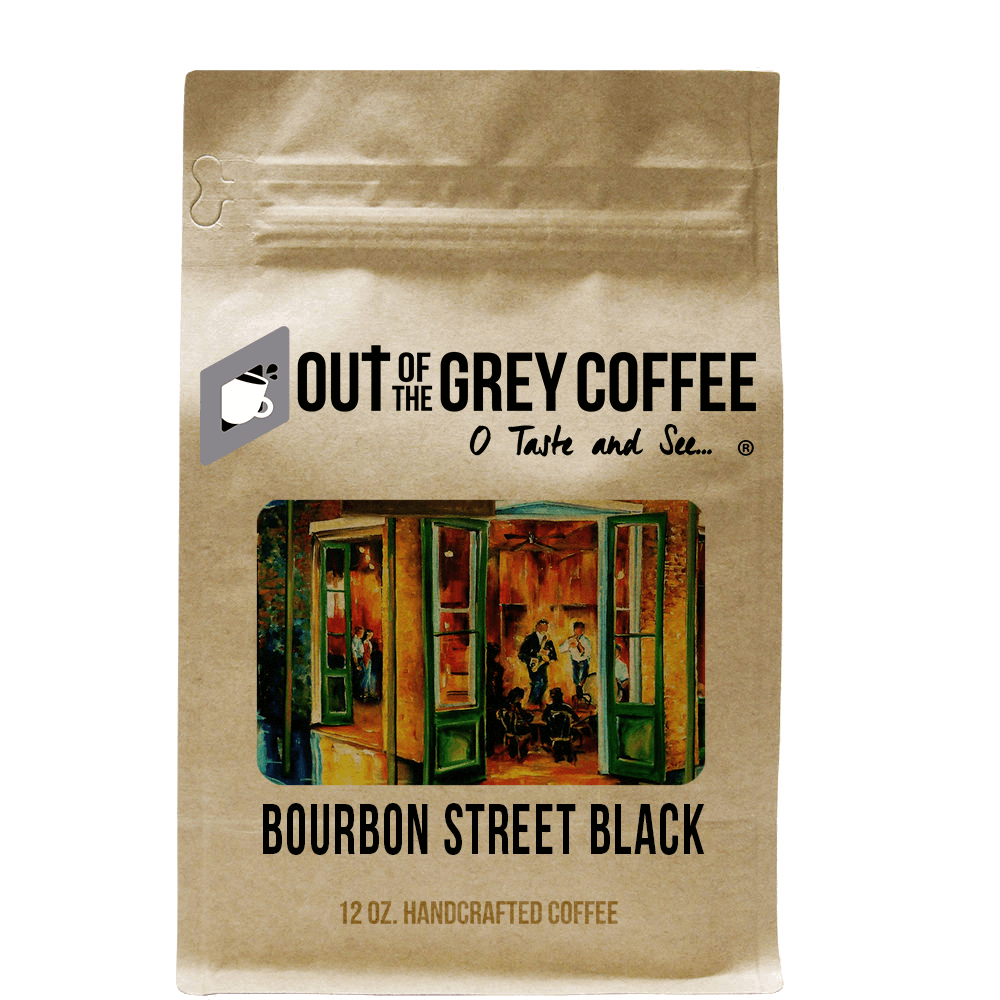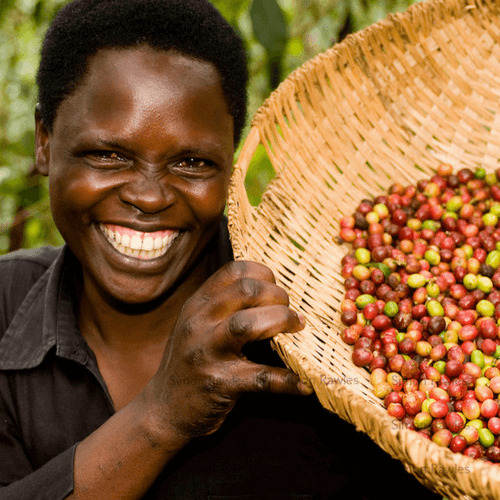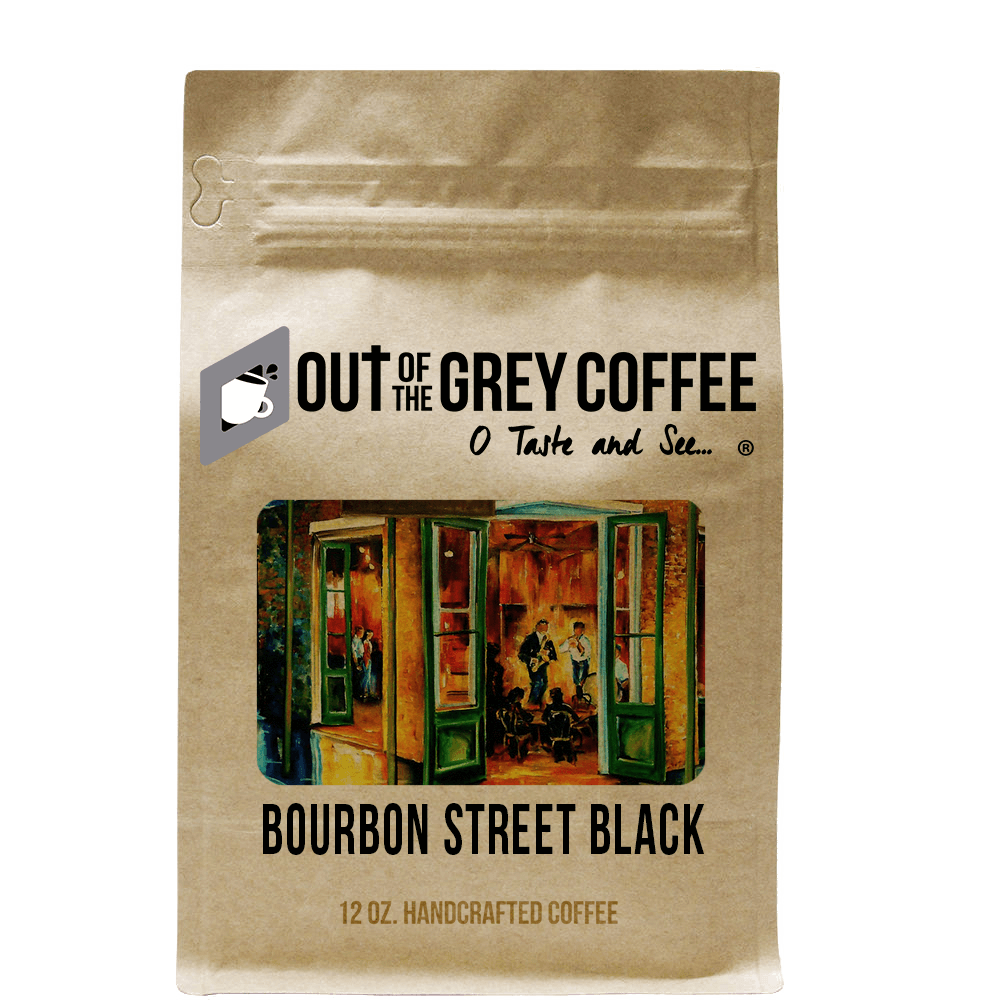


Bourbon Street Black - Coffee Blend
$26.48
(Haitian Viennese / Chicory)
Intensely rich with pungently sweet-toned aroma and dark taste. Unapologetically N’awlins… Bon Appetit
Where y’at, Brah?
Perfect choice for coffee drinkers suffering from digestive issues, or those that just prefer low acidic coffees with a higher level of antioxidants.
100% delicious!
Roast: Dark
12 oz. Handcrafted Coffee
It’s not known who in history first started using chicory as a coffee substitute. But in the 17th century, Europeans newly addicted to coffee weren’t pleased when access was limited, either due to shortages or royal decree. Desperate substitutes included toasted grains such as barley or wheat, ground and filtered to make coffee-like drinks. But a more effective alternative turned out to be chicory root, which can be roast and ground into a similar (but caffeine-free) hot drink.
Coffee made with chicory first spread widely when Napoleon cut off British trade with much of Europe, resulting in what was called the “Continental System.” Napoleon actively encouraged the drinking of chicory coffee hoping that if France and its allies relied on local products, it would strangle the British economically. Plus, the mix was compelling, giving coffee a dark, smoky undertone, more body, and a bitter chocolate tang.
Trade and colonization also helped New Orleans develop into a coffee center. Because of its proximity to Latin America and the Caribbean, it became the U.S.’s second largest importer of the bean in the 19th century.
As for why chicory coffee became emblematic of New Orleans, there’s a bit of a mystery. It’s popularly thought that locals turned to chicory when their coffee supply was cut off by Union blockades during the Civil War. But some scholars allege that since chicory was also imported, this couldn’t be true. Perhaps it was just chicory’s relative inexpensiveness and unique flavor that kept it popular, especially when mixed into hot milk. Louisiana was part of France until 1803 and retained a French-influenced cafe culture that emphasized dark, strong roasts—a flavor profile that can benefit from the addition of chicory.
New Orleans is today a thriving coffee city, with a world-class specialty coffee scene.
It’s no secret that the Crescent City—the nickname inspired by the shape of the city due to a curve in the Mississippi River—has had an outsized cultural influence on the rest of the United States and the world beyond. It’s certainly the most influential musical city in the US, having given birth to numerous musical genres. It’s a culinary city, too—considered an epicurean destination by people all over the globe. And a big part of this culinary tradition is coffee. This is true, New Orleans coffee!

